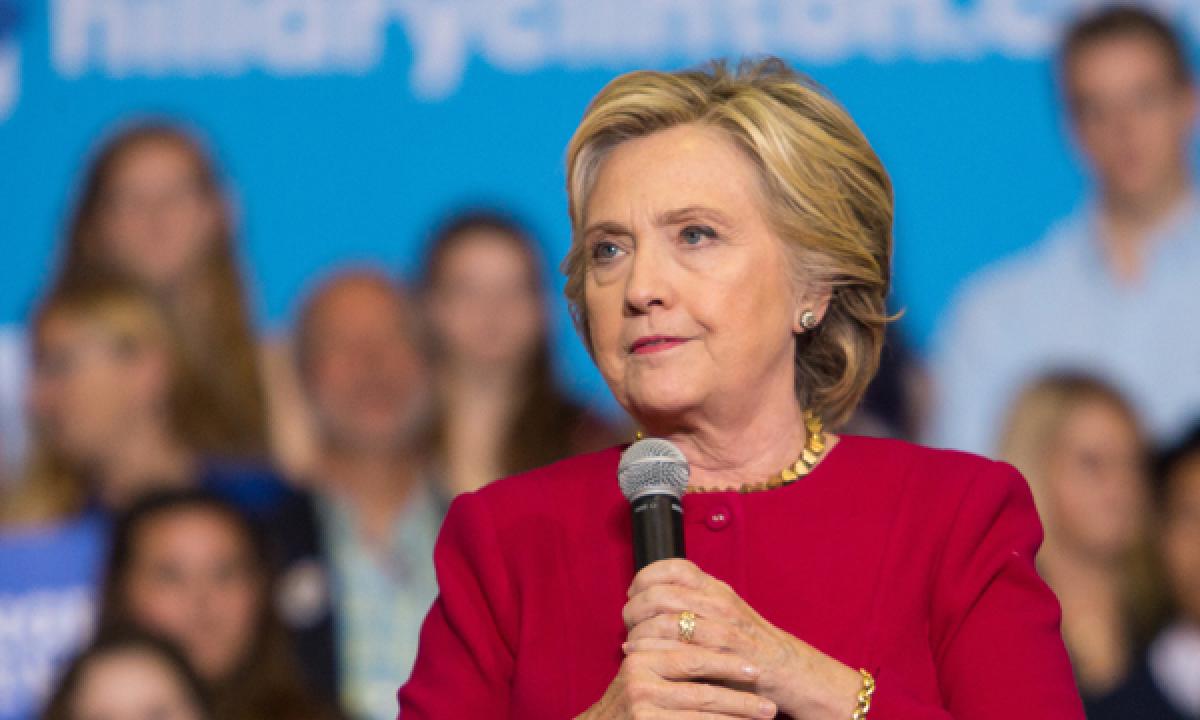Live
- Sanju Samson and Tilak Varma Shine: Record-Breaking Feats in 4th T20I Against South Africa
- India Urges $1.3 Trillion Annual Climate Support for Developing Nations
- Bad air: 106 shuttle buses, 60 extra Metro trips planned to make Delhiites give up cars
- WHO reports declining monkeypox cases in Congo
- CM Attends Kotideepotsavam on Kartika Purnima
- PKL Season 11: Raiding trio of Devank, Ayan, Sandeep help Patna Pirates rout Bengal Warriorz
- Food waste crisis fuels sustainable practices across APAC food & beverage industry: Report
- AI helps erase racist deed restrictions in California
- ATMIS completes third phase of troops' drawdown in Somalia
- PM Kisan Samman Nidhi scheme bringing smile to Nalanda farmers
Just In

The Federal Bureau of Investigation (FBI) acted inappropriately when it announced the revival of its investigation into Hillary Clinton\'s private email setup days before the November 8 presidential election, Clinton\'s lawyer said, citing search warrant documents made public on Tuesday. The pointed criticism from Clinton attorney David Kendall followed the release in federal court in Manhattan of
The Federal Bureau of Investigation (FBI) acted inappropriately when it announced the revival of its investigation into Hillary Clinton's private email setup days before the November 8 presidential election, Clinton's lawyer said, citing search warrant documents made public on Tuesday.
The pointed criticism from Clinton attorney David Kendall followed the release in federal court in Manhattan of documents related to an October search warrant targeting e-mails involving the Democratic presidential nominee.
The warrant was issued two days after Federal Bureau of Investigation Director, James Comey informed Congress in a letter on October 28 of newly discovered e-mails that appeared "pertinent" to his agency's probe.
Comey's letter drew new attention to Clinton's use of the server while she was secretary of state from 2009 to 2013 and roiled the campaign 11 days before the election, which Republican Donald Trump won.
Clinton has blamed Comey and his letter for her defeat. In an affidavit unsealed on Tuesday, an FBI agent said there was "probable cause" to believe e-mails involving Clinton were among 'thousands' found on a laptop in an unrelated probe that contained United States (US) Department of State correspondence.
But the documents gave no indication the FBI had any evidence at the time of Comey's letter that any of the e-mails on found on a laptop involved classified communications with Clinton. Kendall said the documents showed the "extraordinary impropriety" of Comey's letter, which "produced devastating but predictable damage politically and which was both legally unauthorised and factually unnecessary." The FBI declined to comment.
The laptop belonged to former Democratic US Representative, Anthony Weiner, the estranged husband of Clinton aide Huma Abedin who was the subject of an investigation after a report about cell-phone and online messages he sent a 15-year-old girl.
The search warrant materials' release was sought by Randol Schoenberg, a Los Angeles-based lawyer, who contended that transparency was crucial given the potential influence the probe had on the election's outcome.
In a statement, Schoenberg said he saw "nothing to suggest that there would be anything other than routine correspondence between Secretary Clinton and her longtime aide Huma Abedin."
Brian Fallon, who served as the national press secretary for Clinton's campaign, said on Twitter the search warrant "reveals Comey's intrusion on the election was as utterly unjustified as we suspected at time."
In July, Comey recommended no charges be brought over Clinton's handing of classified information in the e-mails, although he said she and her colleagues were "extremely careless" in handling such information.
That determination followed what the search warrant materials called a "criminal investigation concerning the improper transmission and storage of classified info on unclassified email systems and servers."
In his letter to Congress, Comey said e-mails potentially related to the investigation had been discovered in an "unrelated case." Federal investigators obtained the warrant to examine the e-mails on October 30. Two days before the election, Comey disclosed the e-mails did nothing to change his earlier recommendation.

© 2024 Hyderabad Media House Limited/The Hans India. All rights reserved. Powered by hocalwire.com







